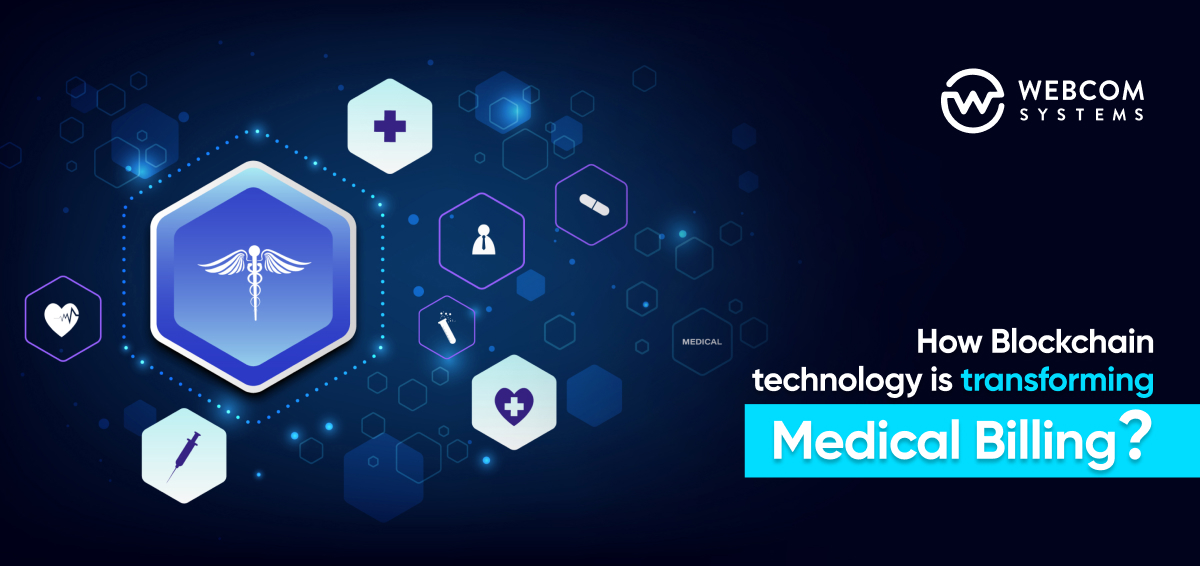Medical billing is often dismissed as routine administration, yet it plays a crucial role in enabling healthcare establishments to sustain, operate, and improve the quality of care. Apart from that, for patients, these invoices provide clarity over what they are actually paying for as well as ensure correct reimbursement of their claims.
As a result, healthcare billing continues to be a major component of the whole industry. It does, however, have significant flaws, such as manual errors, a lack of transparency, delayed reimbursements, and a rise in illegal activities.
Where these gaps in medical billing present difficulties, Technology Architects see opportunities for blockchain to not only fix existing problems but also generate new value.
Blockchain is frequently viewed as a digital currency, owing to its well-known predecessor, Bitcoin, and some find it difficult to imagine it addressing such complex issues. Yet it is doing wonders for many sectors, particularly in medical billing within healthcare. Let’s discuss how!
Common Challenges In Medical Billing
Before diving into the impact of blockchain in medical billing, it’s important to first understand and examine the significant challenges and complexities currently faced in the conventional approach. Here are some of the major ones:
- Medical Billing management demands extensive paperwork and a manual workforce, which means higher administrative costs for healthcare institutions.
- The intricate nature of medical documentation often makes it vulnerable to human inaccuracies. Hence, it perpetuates similar errors in medical billing as well.
- In addition to the complexities of medical documentation, insurance policies from various service providers and their multiple coverage plans add another layer of complexity. Thus, human error is common, which frequently results in claim denials and payment delays.
- Healthcare providers must comply with regulatory requirements in order to maintain high patient safety standards and secure patient information. These regulations are complex, numerous, and constantly changing, making compliance in medical billing difficult.
- Medical billing is vulnerable to fraud, including upcoding, unbundling, and billing for services that were not provided.
Impact Of Blockchain Technology In Medical Billing
Did you know that the blockchain market in healthcare, valued at USD 67 million in 2024, is estimated to grow to USD 641 million by 2035? Thus, the impact is actually real, and the healthcare industry is actually investing massively in blockchain development.
The application of Blockchain in healthcare includes the use of its distributed ledger to actually record and manage healthcare transactions such as medical records, healthcare billing, clinical trials, etc. Since the ledger is created using cryptographic techniques, every transaction that is recorded is safely encrypted, tamper-resistant, and verifiable.
Let’s examine in more detail how this technology is affecting medical billing:
Employ Smart Contracts To Automate Operations
Smart contracts are digital agreements that are coded with the terms of their implementation. Therefore, when the predefined conditions of implementation are actually executed, they automatically carry out the task.
These smart contracts are used in the healthcare industry to automate the manual process of medical billing. This automation benefits patients and healthcare providers, as well as insurance companies.
To understand this, consider the example of medical payments. They can be automatically processed when the smart contract conditions for insurance coverage are met. Similarly, claims reimbursements can be processed more quickly and precisely, with no human error or effort.
Practice Integrated Health Data Management
Blockchain provides a unified payment management solution and eliminates the need to manage multiple systems. All the concerned parties, including healthcare service providers, insurance companies, and patients, can access a common framework to view and verify the billing data.
Thus, all the billing operations are managed through a single blockchain solution that gathers billing and insurance information. It saves a lot of time and streamlines the operations as well as improves coordination within the medical establishment as well.
Increases The Transparency And Accountability
Medical invoices often lack transparency, which confuses the patients as well as insurance companies and often leads to disputes. But with blockchain, all the transactions are documented in its digital ledger with complete visibility into billing details, claim statuses, and payment histories.
This distributed ledger provides complete transparency as well as immutability, which minimizes billing errors and miscommunication. Even if there is a case of fraud from any party, whether it’s the patient, insurer, or healthcare facility, it can be easily checked and managed much more efficiently.
Fraud Prevention and Improved Accuracy in Medical Billing
For both insurance companies and healthcare facilities, even a small error in medical billing can cost billions of dollars. As a result, they must invest in billing solutions with robust infrastructure to avoid these costly mistakes.
Blockchain-based medical billing systems offer a transparent and immutable record of billing data. These are quite resistant to both intentional and unintentional mistakes. Issues such as duplicate claims or phantom billing can be easily identified and flagged immediately.
Enhance the Security and Privacy of PHI and Billing Data
Billing information in healthcare entails patient health information (PHI), as well as their personal and financial details. That is why they are highly vulnerable to cyber attacks. Blockchain addresses data concerns by utilizing decentralized data storage and cryptographic encryption techniques.
This information can only be accessed by authorized parties, such as the hospital, insurance provider, or patient. Furthermore, it cannot be changed or deleted without the agreement of the blockchain network.
Blockchain technology even simplifies compliance with regulations like HIPAA and other privacy data standards. Thus, healthcare service providers can operate compliant payment processing systems with blockchain integration.
Improve The Operational Efficiency As Well As Cost
Blockchain technology can fully digitize billing operations. Smart contracts are actually useful to eliminate the need for multiple intermediaries and reduce manual paperwork and administrative tasks. This automation not only speeds up claims processing but also facilitates quicker payments.
Thus, healthcare institutions can improve their cash flow while minimizing administrative overheads. This ultimately increases revenue and allows hospitals to reallocate resources to other aspects of healthcare services.
Real-World Applications of Blockchain in Healthcare Billing
Here are some of the real-world applications of distributed ledger technology in medical billing:
- Mayo Clinic, the world-famous hospital in Rochester, Minnesota, uses blockchain technology in its various operations, such as clinical trials, medical record sharing, and, of course, its billing processes.
- Mount Sinai’s Biomedical Blockchain Research Center is applying blockchain for billing accuracy, fraud detection, and more
- 214 years old, Massachusetts General Hospital (MGH) has integrated decarbonization to secure and improve its medical billing operations.
- The Californian Cedars-Sinai Medical Center is exploring blockchain technology to improve efficiency in its medical billing system.
- Stanford Health Care, based in California, has shown a strong interest in blockchain adoption. It has been actively engaged in research and discussions exploring its potential in patient billing and clinical trials.
Challenges In Blockchain Integration in Medical Billing
As blockchain adoption in healthcare sector is still in its early stages, it presents several challenges, such as
- Existing healthcare management systems include a massive database. Blockchain adoption with these systems requires a highly complex data migration and technical expertise to manage it.
- Indeed, blockchain ensures compliance with regulations such as HIPAA and GDPR. Despite this, regulations surrounding blockchain adoption remain unclear in some countries.
- While blockchain presents smart solutions, most networks face scalability issues. But, professional blockchain developers adopt scaling 2 solutions to address the issues and build scalable blockchain-based billing platforms for healthcare service providers.
- Some healthcare professionals are hesitant to adopt blockchain technology due to its complexity. But it is not much of an issue. Blockchain consulting and training services can help them understand how to use the technology effectively.
Wrapping Up
Therefore, Blockchain technology is transforming key operations in the healthcare sector, including medical billing, by incorporating its key features of decentralization, a distributed ledger, immutability, transparency, security via cryptography, and much more. It benefits patients, insurers, and healthcare providers by improving medical billing and healthcare finance. Although blockchain adoption still presents certain obstacles, professional blockchain development companies like Webcom Systems assist in overcoming these obstacles with their sophisticated tech stack and development expertise.
Are you interested in exploring how blockchain can impact other areas of the healthcare sector? Contact us today!
Recommended Read: Role Of Blockchain In The Indian Real Estate Market




